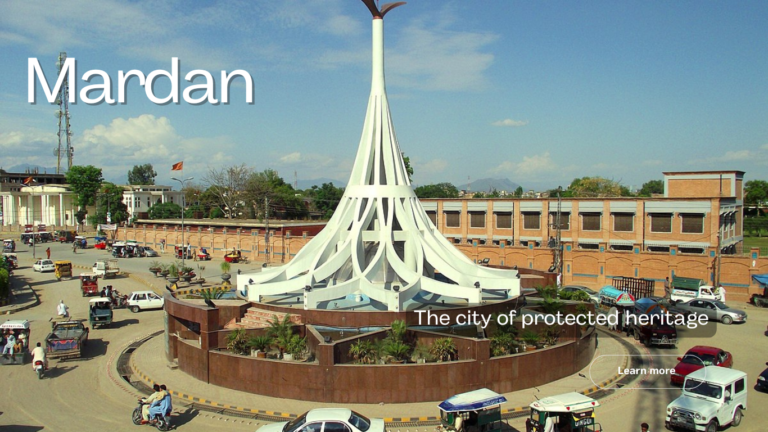Mardan
Mardan, a city rich in history and home to Buddhist ruins and statues listed as UNESCO World Heritage, is now grappling with the challenges of expanding urbanization. In 1998, the population stood at 245,000, and by 2018, it had surged to 359,000. This rapid growth has led to rising concerns about water pollution, which is increasingly affecting public health, sanitation and groundwater reserves.
In response to these issues, the Local Government Elections and Rural Development Department, Government of Khyber Pakhtunkhwa, with financial backing from the Asian Development Bank (ADB) and the Asian Infrastructure Investment Bank (AIIB), has initiated the Khyber Pakhtunkhwa Cities Improvement Project. This project aims to address water pollution and safeguard the city’s groundwater reserves from contamination, ensuring a healthier future for Mardan’s residents.

Sub Projects
Sewerage Treatment Plant - Mardan
No of UCs: 6
Treatment Capacity: 5.8 MGDs
Length of drains network: 80km
New Households connections: 12,803

